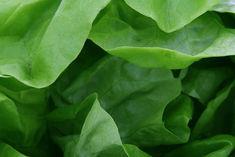
The Fresh Prepared Salads Producer Group (FPSPG) has joined the flood of voices hitting back at allegations in the press this week that prepared salads are unsafe to eat.
The FPSPG, which supplies washed and ready-to-eat salad packs to all the major UK supermarkets, supported by the CFA and FSA, is enforcing that safety is the chilled food industry’s number-one priority. The group maintains that more than 2.5 billion packs of chilled prepared salads have been consumed safely in the UK over the past 10 years.
“Our products sold as ‘washed and ready to eat’ are just that,” said the FPSPG. “We have long recognised that to produce a safe-to-eat salad one needs safe-to-eat produce off the field. To achieve that, we strive to ensure that dangerous microbes do not get the opportunity to contact our crops - such that hypotheses as to how they initially adhere are irrelevant. The UK prepared salads sector has an unrivalled safety record and employs stringent controls, described as ‘excellent’ by the FSA - not necessarily the case elsewhere in the world. There has not been a confirmed outbreak associated with prepared salad since 2001 in the UK.”
Professor Gad Frankel of London’s Imperial College told delegates at the Food Micro 2008 conference in Aberdeen that pre-washed salad was not necessarily safe to eat, which has sparked media attention throughout the country.
But professor Bill Keevil of the University of Southampton, who was present at the conference, revealed that he was “extremely disappointed” by the quality of the data presented and its interpretation. “We have known for a long time the various mechanisms that bacteria can use to attach itself to a range of surfaces, including plants,” he said. “This is not new.”
While Salmonella contamination of any food is a potential health risk, the FPSPG believe that current media reports arising from this latest research in relation to pre-packed salads are inaccurate and misleading.
“The risk of bacterial contamination to salads, whether they are prepared or not, is managed by the way in which the crop is grown and by the wash process used. Stringent controls - unlike those seen elsewhere in the world - are employed in the UK retail leafy salad supply chain to minimise the potential for contamination,” said the prepared salad group. “The controls cover: history of use of the land, quality of seeds, quality of irrigation water and controls on the use of organic fertilisers and these are rigorously enforced by responsible food manufacturers and very demanding retailers. Consequently, the highest standards of field hygiene are employed where crops are grown. The use of raw animal manure is strictly banned from all salad farms as indeed is the use of water that may be contaminated by animal manures. Where properly composted animal manure is used as a fertiliser - as our members growing organic salads are encouraged to do - the composting process is rigorously checked and the compost tested for microbiological safety before application.
“In a climate where the government and health professionals are encouraging the consumption of fruit and vegetables, it is unhelpful at best - and potentially irresponsible - to mislead consumers about the safety of their food,” added the FPSPG. “Fresh prepared bagged salads represent a cost-effective, tasty, low fat, low salt, low sugar and convenient way to eat more healthily.”